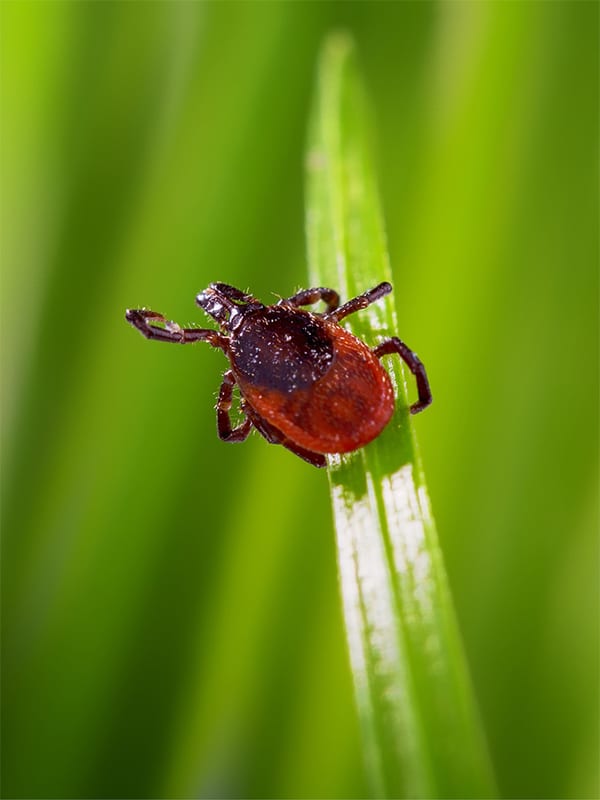Waiting to get in for your pet's annual exam?
Due to the high volume of appointments, we want to make sure dogs and cats remain protected against fleas, ticks, and worms. If you're waiting for your pet's appointment but have run out of flea, tick, and heartworm preventatives, we'll be happy to give you a couple months' worth of preventatives to keep your dog or cat protected.
Tick Protection in White Bear Lake
Have you talked to your veterinarian about tick protection? Ticks are becoming increasingly troublesome (and populous) throughout the country, and many are capable of transmitting illness to our pets (and us). Preventing these illnesses is much easier than treating them, so we recommend paying a visit to Birch Lake Animal Hospital to have your pet tested for tick-borne diseases and prescribed with parasite preventatives to keep them safe.
Ticks You Can Find in Minnesota
Blacklegged ticks, or deer ticks, are common here in eastern Minnesota and are capable of transmitting disease-causing bacteria to their hosts, which generally include rodents, deer, dogs, cats (occasionally), and people.
Other ticks found in our state include the American dog tick and the Lone Star tick.
Diseases Caused by Ticks
Lyme Disease – Blacklegged ticks are the primary carriers of a bacterium called Borrelia burgdorferi. When this bacteria enters the bloodstream of a dog or person, they become infected with Lyme disease. The main symptoms of Lyme disease include fever, lethargy, lameness, swelling of the joints, and “bull’s eye” rashes on the skin (seen in humans).
Anaplasmosis – Another disease that can be caused by blacklegged ticks is anaplasmosis, which causes fever, headache, muscle pain, and nausea.
Ehrlichiosis – Lone Star ticks may carry bacteria that cause ehrlichiosis, and illness that causes fever, vomiting, diarrhea, and lethargy.

Protecting Against Tick-Borne Illnesses
To prevent yourself and your pet from becoming infected with a tick-borne disease, you need to prevent ticks from biting altogether. Here’s what you can do:
- Before any outdoor activities, put on light-colored clothing that is treated with permethrin, which can kill all kinds of pests—including ticks
- Tuck your pants into your socks, wear long sleeves, and wear a hat that covers your hair
- Spray yourself with bug spray that contains DEET
- See that your dog or cat is current on their flea and tick preventative. We offer these products in house:
- Frontline
- Bravecto
- Nexgard
- If you have a dog, talk to your veterinarian about vaccinating them for Lyme disease
- Avoid walking or engaging in other activities in areas that are heavily forested or have lots of tall grasses; ticks love to hide out in places like this to wait for a passing host
- Keep grass on your property short, trim shrubs back, and clear away leaf litter and other plant debris that might be sitting around your yard
If you have additional questions about repelling ticks and preventing tick-borne illness, let us know by calling (651) 426-2246.
